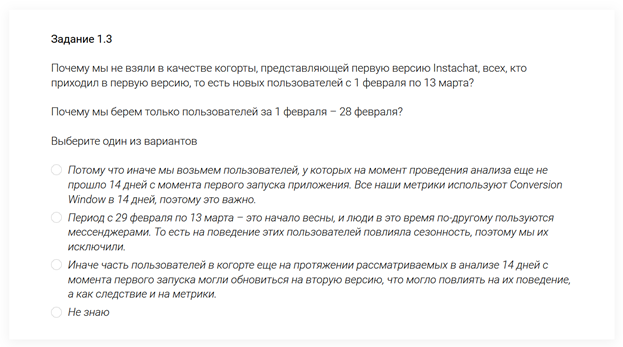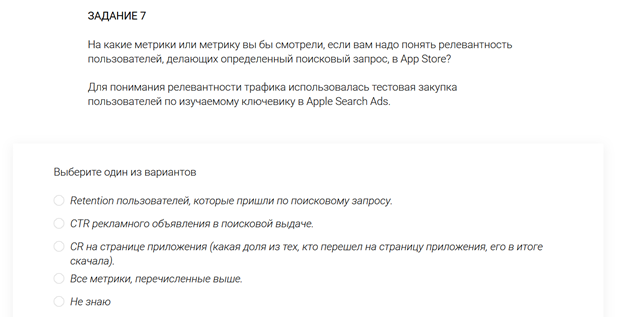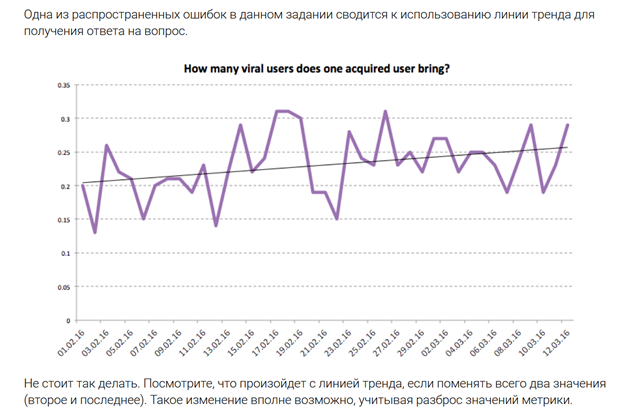How we learned to be Data Driven with GoPractice Simulator
Last year, the Plesk Program Manager team got the opportunity to take an online GoPractice course ! Simulator by Oleg Yakubenkov, and now we want to share our impressions.
Program Manager in Plesk can be most accurately described as a “technical” product manager. This means that in addition to the actual product competencies, each PM has a technical background and is immersed in the subject area so as to generally understand the specifics of working with hosting, cloud services and web development. Some of us are more focused on working directly with product features, while the other is more involved in analytics and statistics. I myself combine both of these roles.
In this review will be my personal impressions of the GoPractice! Simulator, and feedback, which my colleagues shared with me.
The simulator is an online course in a game format. The player will have to reincarnate as a novice grocery analyst, taking a job as an ambitious start-up, who has set a goal to create a new generation of messenger and complete redistribution of the market.
The course is focused on a wide range of users: IT-specialists, business leaders and those who are already engaged in product analytics, but would like to streamline their knowledge and improve their decision-making skills based on data. In Plesk, in addition to several product managers, the community manager and the head of the PM team were trained.
Structurally, the course is divided into chapters, which can only be carried out consistently: moving from simple to complex, from calculating Retention and forecasting the growth of the daily audience of the application to solving more specific issues: finding a channel to attract customers, expediency of buying traffic in social networks and choosing a hypothesis more likely to invest effort and money. In parallel with the development of the plot, step by step formulas are introduced for calculating the corresponding metrics. Capable blocks of the theory are interspersed with stories of real market players and very vital messages from the virtual authorities.
')



Perhaps the most important thing that personally gave me the course is the understanding that the choice of methods and tools for assessing the success of a product (and each individual feature) is not a stone at the crossroads of roads to which the analyst makes a choice without the right to make a mistake. DAU / MAU, ARPU, LTV, Retention is just an opportunity to get a formalized numerical answer to the questions you ask your product. There is no question yet - it is pointless to choose a metric.
The course itself is an excellent example of testing hypotheses and research based on feedback, fighting misconceptions and working on errors. On the basis of the course, you can create for yourself a logical algorithm that will help to measure the product correctly from the very beginning.

My colleagues also noted that in the process of learning, an understanding of new tools came to them - for some it is a cohort analysis, for others it is work with Amplitude, others just got a more coherent logical picture of the process of working with data. The course is a clear division of metrics into growth and product metrics - this understanding was very useful for us. The theory creates in the head a system for working with metrics; disparate facts add up to the big picture, and practice helps to consolidate the knowledge gained.
Summing up, it is safe to say that the format and use of 'GoPractice!' It has no competitors on the Russian product analytics market yet. The course, no doubt, will be useful to everyone who is already engaged in product analysis, and those who have just started their careers in this field.
After completing the course, each of us received a certificate. As already mentioned, at the time of training, the final score was influenced by errors in the questions on guessing, which was somewhat disappointing. At the same time, open-ended questions "to think" did not go to offset. But the main thing, as we all know from the university, is not an assessment, but knowledge that will remain forever in your luggage after graduation, and enjoy the process :)
Who are we?
Program Manager in Plesk can be most accurately described as a “technical” product manager. This means that in addition to the actual product competencies, each PM has a technical background and is immersed in the subject area so as to generally understand the specifics of working with hosting, cloud services and web development. Some of us are more focused on working directly with product features, while the other is more involved in analytics and statistics. I myself combine both of these roles.
In this review will be my personal impressions of the GoPractice! Simulator, and feedback, which my colleagues shared with me.
What is 'GoPractice Simulator!' ?
The simulator is an online course in a game format. The player will have to reincarnate as a novice grocery analyst, taking a job as an ambitious start-up, who has set a goal to create a new generation of messenger and complete redistribution of the market.
The course is focused on a wide range of users: IT-specialists, business leaders and those who are already engaged in product analytics, but would like to streamline their knowledge and improve their decision-making skills based on data. In Plesk, in addition to several product managers, the community manager and the head of the PM team were trained.
How does the course work?
Structurally, the course is divided into chapters, which can only be carried out consistently: moving from simple to complex, from calculating Retention and forecasting the growth of the daily audience of the application to solving more specific issues: finding a channel to attract customers, expediency of buying traffic in social networks and choosing a hypothesis more likely to invest effort and money. In parallel with the development of the plot, step by step formulas are introduced for calculating the corresponding metrics. Capable blocks of the theory are interspersed with stories of real market players and very vital messages from the virtual authorities.
')

What did you like
- A distinctive feature of the course is a simulator format that allows you to solve practical cases in the form of a game. The starting point of the process is a letter inviting you to the final interview for the position of analyst at Instachat - “a company that will soon change the way we communicate.” Spoiler - you will be accepted. Then everything is like in life - communication with colleagues, releases and changes of concept, decision making in the face of uncertainty and attempts to gain this very certainty :) The plot has been worked out well - it won't be boring.
- Qualitative theory - written in simple language, well structured. New concepts and metrics are introduced and explained as they appear in the game plot and immediately run into practice.
- Another big plus of the course is the opportunity to work in the Amplitude analytics system. Many of the metrics during the training needed to be analyzed there, and it turned out that cohort analysis, event segmentation and conversion funnels are very simple!
- Simulator as a platform works well on various devices. One of our colleagues completed part of the course on the bus from a mobile phone :)
- Special mention deserves the Online community on Facebook, where the author of the course personally answers the asked questions and suggestions. There you can not only discuss assignments with other course participants, but also communicate on professional topics and share insights with colleagues in the workshop.

What you need to be ready to not be disappointed
- Plan time costs - most of us took more than a month to complete the course. 90+ hours can be compared to a good RPG.
- The course is focused on mobile analytics. Many metrics are rigidly tied to the specifics of mobile applications and we found it not so easy to apply them in our work with the boxed product. The general principles of product analytics, of course, are the same for everyone, but mobile analysts will benefit more because specific tools are provided for them ( SensorTower , App Annie ) and examples of working with them.
- Some questions, it seemed to us, are sharpened to "guess-ka." Or they require a significant investment of time to study the issue, google, and so on, which I do not exactly want to do. However, judging by the posts posted on Facebook, this problem has already been addressed and some of the questions have been changed.

Overall impression
Perhaps the most important thing that personally gave me the course is the understanding that the choice of methods and tools for assessing the success of a product (and each individual feature) is not a stone at the crossroads of roads to which the analyst makes a choice without the right to make a mistake. DAU / MAU, ARPU, LTV, Retention is just an opportunity to get a formalized numerical answer to the questions you ask your product. There is no question yet - it is pointless to choose a metric.
The course itself is an excellent example of testing hypotheses and research based on feedback, fighting misconceptions and working on errors. On the basis of the course, you can create for yourself a logical algorithm that will help to measure the product correctly from the very beginning.

My colleagues also noted that in the process of learning, an understanding of new tools came to them - for some it is a cohort analysis, for others it is work with Amplitude, others just got a more coherent logical picture of the process of working with data. The course is a clear division of metrics into growth and product metrics - this understanding was very useful for us. The theory creates in the head a system for working with metrics; disparate facts add up to the big picture, and practice helps to consolidate the knowledge gained.
Summing up, it is safe to say that the format and use of 'GoPractice!' It has no competitors on the Russian product analytics market yet. The course, no doubt, will be useful to everyone who is already engaged in product analysis, and those who have just started their careers in this field.
results
After completing the course, each of us received a certificate. As already mentioned, at the time of training, the final score was influenced by errors in the questions on guessing, which was somewhat disappointing. At the same time, open-ended questions "to think" did not go to offset. But the main thing, as we all know from the university, is not an assessment, but knowledge that will remain forever in your luggage after graduation, and enjoy the process :)
Source: https://habr.com/ru/post/458756/
All Articles